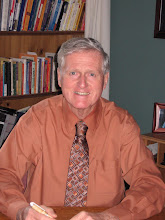Aristotle said it first: "All men by nature desire to know." Then in 1993 a British author, Alfie Kohn, wrote "Punished by Rewards." He argued, brilliantly, I think, that extrinsic rewards actually hurt intellectual performance - that if left to our own devices our natural curiosity makes us learn more than if we are rewarded. Now, Daniel H. Pink has a new book, Drive, that repeats the point and situates his argument in the context of contemporary business.
Republicans will be furious if this principle gets out. They insist that unless you force people to work by starving them if they don't, that workers will just sit and love idleness. Aristotle, Kohn, and Pink say "No, if people are not blocked, they will naturally love to learn, work and create. It's in our DNA." And both Pink and Kohn show experiments that illustrate even monkeys are naturally problem solvers without external rewards being necessary.
Enter the Enneagram. Our desire to learn and to create is not arbitrary. Each style has an inner direction for their creativity: Twos want to create in a different way than Sixes. So when we try to improve (ourselves or others as a coach), we need to know what the intrinsic motivators are. They are more powerful than any imposed goals, rewards or punishments.
Thursday, August 26, 2010
Subscribe to:
Post Comments (Atom)




No comments:
Post a Comment